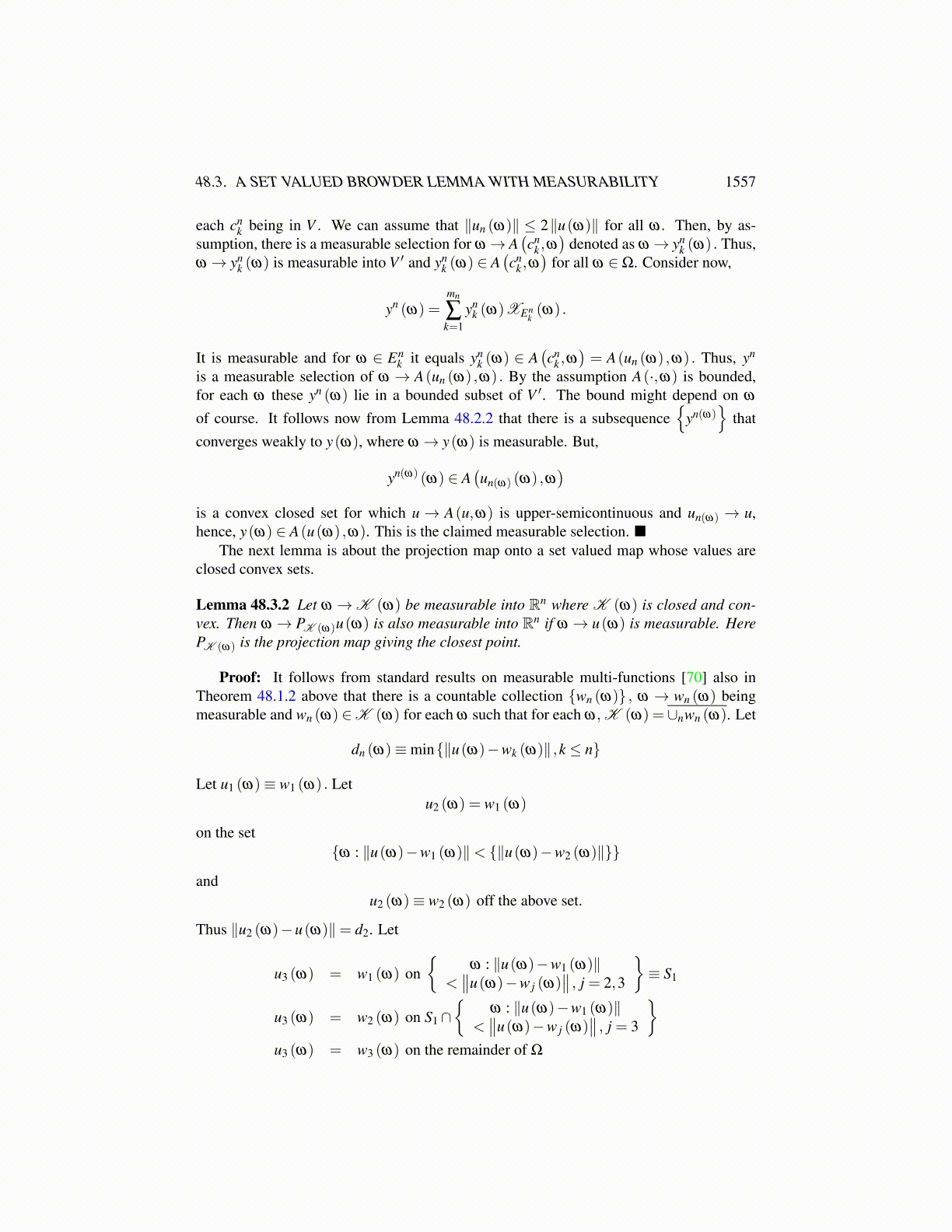
48.2. EXISTENCE OF MEASURABLE FIXED POINTS 1557
There may be other conditions which will imply ω → F (y,ω) is measurable into Xbut an assumption of product measurability as above is fairly attractive. In particular, onecould likely relax the estimate .
Now with this lemma, here is a very useable theorem related to measurable solutions toordinary differential equations.
Theorem 48.2.18 Let f(·, ·,ω) : [0,T ]×Rn→ Rn be continuous and suppose
ω → F (y,ω) (48.2.6)
is measurable into C ([0,T ] ;Rn)≡ X for
F (y,ω)(t)≡∫ t
0f(s,y(s)+x0 (ω) ,ω)ds
Also suppose that
supt∈[0,T ],|x|≤r
|f(t,x,ω)| ≤C (r) independent of ω
and suppose there exists L > 0 such that for all ω and λ ∈ (0,1), if
x′ = λ f(t,x,ω) , x(0,ω) = x0 (ω) , t ∈ [0,T ] (48.2.7)
where x0 is bounded and measurable, then for all t ∈ [0,T ], then it follows that ||x|| < L,the norm in X ≡C ([0,T ] ;Rn) . Then there exists a solution to
x′ = f(t,x,ω) , x(0,ω) = x0 (ω) (48.2.8)
for t ∈ [0,T ] where ω → x(·,ω) is measurable into X. Thus (t,ω)→ x(t,ω) is productmeasurable.
Proof: Let F (·,ω) : X → X where X described above.
F (y,ω)(t)≡∫ t
0f(s,y(s)+x0,ω)ds
F is clearly continuous in the first variable and is assumed measurable in the second.Let B be a bounded set in X . Then by assumption |f(s,y(s)+x0,ω)| is bounded for
s ∈ [0,T ] if y ∈ B. Say |f(s,y(s)+x0,ω)| ≤CB. Hence F (B,ω) is bounded in X . Also, fory ∈ B,s < t,
|F (y,ω)(t)−F (y,ω)(s)| ≤∣∣∣∣∫ t
sf(s,y(s)+x0,ω)ds
∣∣∣∣≤CB |t− s|
and so F (B,ω) is pre-compact by the Ascoli Arzela theorem. By the Schaefer fixed pointtheorem, there are two alternatives. Either there exist ω,λ resulting in arbitrarily largesolutions y to
λF (y,ω) = y